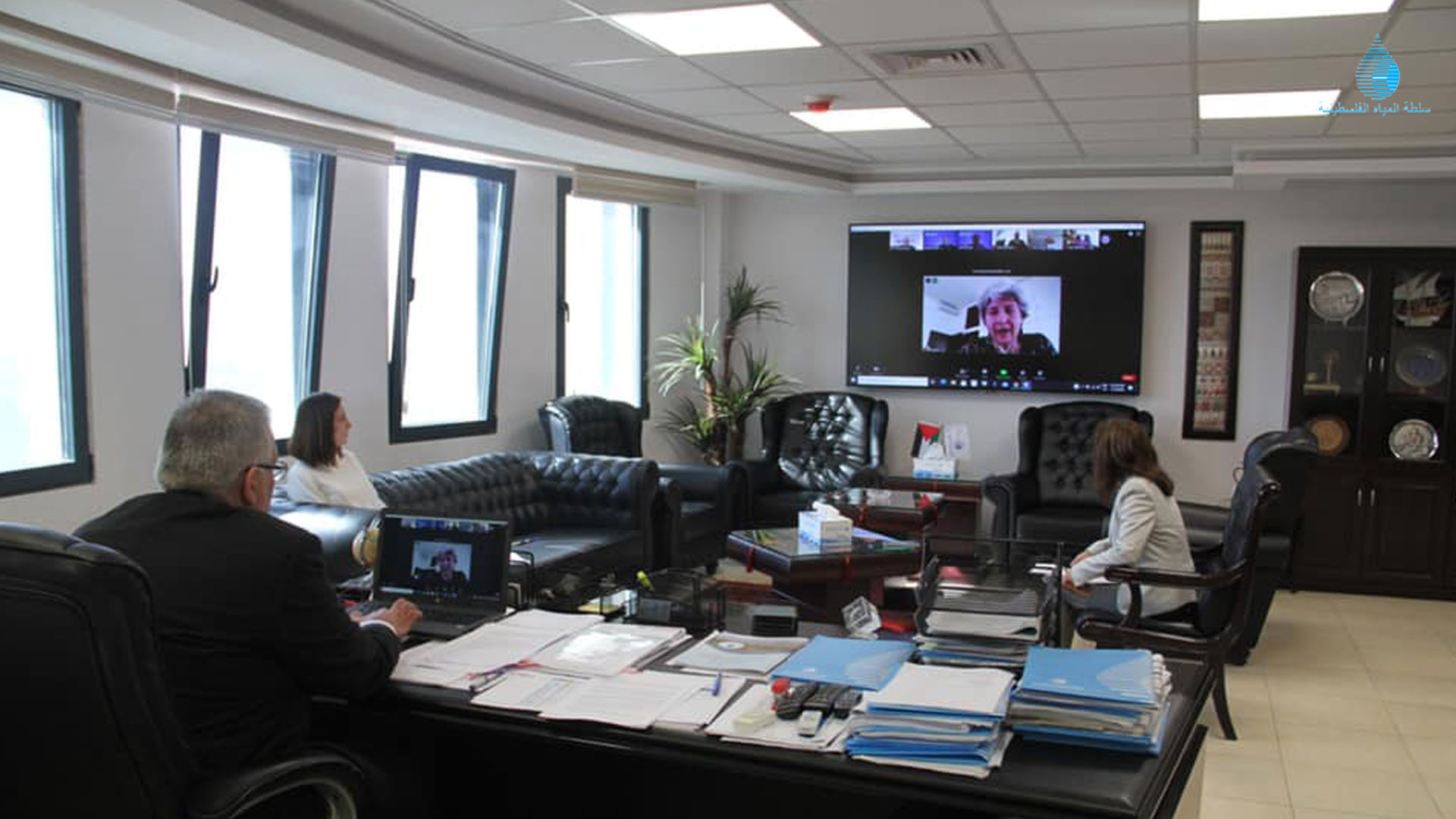Ramallah: The head of Water Authority chaired today the first meeting of the Steering Committee of the Water Availability and Agricultural Adaptation Program for Climate Change in North Gaza, with the participation of the French Development Agency, the United Nations Food Organization, and the Irish Representation in Palestine, and in the presence of representatives of the Palestinian partners in the program, the Ministry of Agriculture, the Ministry of Finance, the Environmental Quality Authority, the Energy Authority, the Regulatory Council and the Coastal Authority, as this program aims to provide additional sources of water to achieve water security, which is one of the main challenges in Palestine, as well as achieving food security in the Gaza Strip.
Minister Ghunaim stressed the importance of the project and its great impacts on the lives of citizens, and on food security by supplying the agricultural sector with unconventional and appropriate water resources for the development of the agricultural sector, in addition to strengthening strategic plans to preserve the aquifer and allow it to recover after years of depletion.
During the meeting, Eng. Ghuneim stressed the importance of cooperation between all partners to save the water situation in Gaza, pointing to a set of solutions that the Water Authority has adopted to provide safe water by focusing on non-conventional water sources, such as desalination of seawater and wastewater treatment, and reuse systems. These interventions are expected to meet the needs of the people in the Gaza Strip and reduce groundwater depletion.
The Water and Agricultural Adaptation Program for Climate Change in North Gaza is considered the last stage of work on the North Gaza Emergency Treatment Plant Project, which began work in 2006, and included the construction of the sewage treatment plant, the water transmission system for the new station, the filtration basins for the aquifer, the recovery wells, the irrigation pumping and irrigation networks, that will collectively provide new unconventional water sources; It includes the provision of 13 million cubic meters of treated effluent that will be reused to irrigate about 1,500 hectares of agricultural land, and reduce groundwater depletion, thus improving the quantities of water delivered to the citizens of North Gaza and Gaza City.
The program also includes increasing energy production and providing wastewater treatment facilities (7.5 MW) through the photovoltaic renewable energy plant, which will reduce carbon emissions in the atmosphere.
It is worth noting that the water and climate change program is the first program of its kind that Palestine obtains from the Green Climate Fund, to adapt to climate changes that negatively affect the water sector, and it is among the priorities of Palestine included in the national adaptation plan, through which the water sector was linked with the energy and agriculture sectors, and thus the program will be implemented in full cooperation between all the main partners to achieve effective and integrated program management.